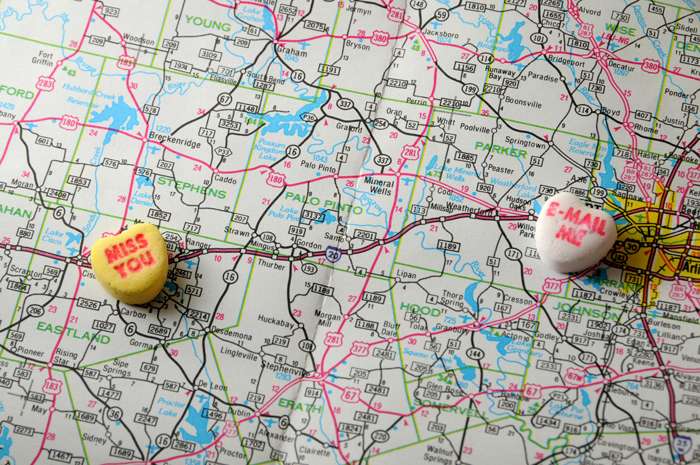Sibling power
/Here are my five siblings and my Dad. I'm on the far left with Sterling -- the first Christmas after we were married. In my mind we were more hip. But maybe not.
I grew up the second child in a family of six children. We were all fairly close in age, with just ten years separating the oldest from the youngest. This made for instant playmates, loads of sibling rivalry, and lots of lessons on getting along. My mom has always said that one of the functions of siblings is to keep each other beat down. (I'm sure there is a more politically correct way to phrase "beat down," but I'm all about keeping it real.) What she means, of course, is that if the family is the classroom for life, siblings are a highly reliable reality check.
One tool that I think we undervalue and often under-utilize in parenting is the sibling check. For instance, when my younger sister was in elementary school, she had a penchant for wearing her slip around the house as a dress. It was silky and lacy, and she thought it was beautiful. As the older, cooler, and more worldly sister, I was horrified at the thought that my mother might allow her to wear that slip in public. So every time I saw the slip ensemble (usually accompanied with plastic high heels), I'd say something like, "Ummm . . . you know that's not a dress, right?" Or I'd tease her. To this day, when I bring up the slip incident my sister squints her eyes at me and starts a slow boil. I'd forever squelched her slip dreams. Sorry, sis.
Actually, I didn't squelch anything. She continued to wear the slip (to my horror), but she was aware that slips in public might be outside of the line of normal slip usage. I made sure she knew the line was there. If she wanted to take a flying leap over that line in all her silky, slip-ey glory -- then that was up to her. FLY FREE SLIP GIRL!
Here's another example:
Parker is noisy. As seems befitting the twelve-year-old male group, he is constantly beat-boxing, machine-gunning, bleeping, blurping, humming. Lots of noises. When it gets to be too much, one of his sisters is bound to say, "Parker, enough with the machine gun noises." Me? I'm busy wondering if we have enough ground beef in the freezer for dinner, reminding myself to get to the post office before five, and worrying that the last five pages of the chapter I turned in were utter drivel. I barely hear the machine gun. What machine gun? Huh?
My point is . . . it's a cold, cruel world out there and siblings can offer an unbiased point of view. They can teach manners and courtesies and social cues. They can teach how to get along with others, even when the "other" is difficult, or unfair, or in a bad mood. The teaching method isn't always cute or well-delivered, but it can be informative and effective.
Now, I'm in no way advocating bullying or harmful, coercive behaviors. However, in this era of "everyone gets a trophy," the sibling relationship can be especially important in teaching our precious babies that they are not always the center of the universe. I mean, my kids are the center of my personal universe. But, unfortunately, I'm not high up enough on anyone's ladder for that to matter too much in the grand scheme of things. In other words, siblings are often particularly situated to teach life lessons in more powerful, realistic ways.
Some helpful hints for encouraging healthy, yet helpful, sibling relationships:
1. Thoughtfully orchestrate sibling time when the parents aren't around (or immediately accessible). Parker loves to play board games, and that's a perfect place for him to practice being fair and being a good winner, and his sisters aren't likely to cut him a break. I'll often suggest one or all of the girls play with him while we are out. He LOVES this.
2. Let your kids work out their own differences. I try to only step in when I feel the situation becomes unhealthy emotionally. But if someone returns an item of clothing stained (or doesn't return it at all), then they are going to have to suffer the consequences of a disappointed or angry sister. This is a hard one because I dislike contention in the home, and I desperately want everyone to get along. But this is where the sibling magic CAN happen. They have to figure out how to make things better on their own. (There is also a tendency to just separate the kids, but again, this is missing out on learning to 'work it out.')
3. Try to build up sibling relationships. Part of the efficacy of sibling power has to do with understanding natural consequences within relationships. Ideally, this means there are ups and downs. But there do need to be ups, so I'm quick to pass along compliments or convey similarities or shared interests. This can be as simple as commenting on an outfit, "Ooh. You are wearing that scarf that Jordan loves." Or remarking that Madison likes the song Rebecca is playing. This subtly tells her, "See? We are all a little bit alike and a little bit different." Spreading cheer and good will never hurts a learning environment.
I don't want to underplay that sibling relationships can be complicated and difficult in the throws of teenage years. But now that two have mine have flown the coop, I can look back with some perspective and realize just how significant those interactions were in teaching them to be grown up, cooperative people. And, on a hopeful note, my oldest two (just 15 months apart) often did NOT get along -- and now they are hoping to room together next year at college. So. Wow. Hang in there.




















